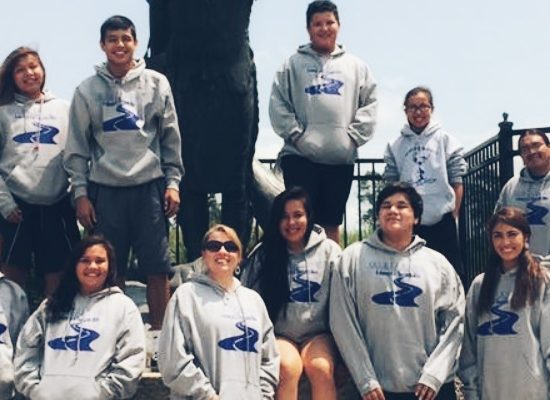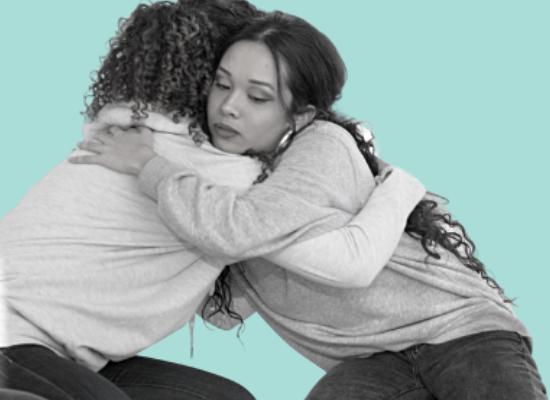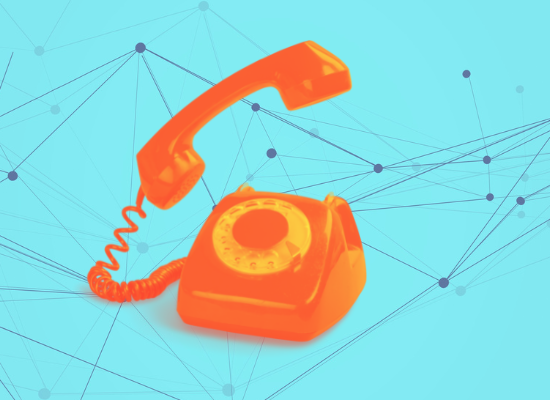
Stephanie Hepburn is a writer in New Orleans. She is the editor in chief of #CrisisTalk. You can reach her at .
Tony Sanchez has been in recovery for more than two decades. He’s the director of Partnerships at Faces and Voices of Recovery and the former director of the Office of Recovery Transformation at Georgia’s Department of Behavioral Health and Developmental Disabilities. He points out that while there’s been much discussion on increasing the behavioral health workforce in anticipation of 988 implementation, legislators haven’t sufficiently examined peer support employment barriers within federal and state policies. “They need to think about how existing policy might create disparities and obstacles to their 988 efforts,” he says. Telecom companies must make 988—the three-digit number for mental health, substance use, and suicide crises—“live” by July 16.
Sanchez lives his recovery “out loud,” sharing with others how it has allowed him to go from unemployed, unemployable, and incarcerated to becoming “a productive member of society.” “I’m a homeowner, a business owner, and a taxpayer,” he says. Yet, when he was young, he thought he’d never find a way out of his substance use disorder. “I thought I was gonna die in jail, prison, or in the streets; either a direct result of using or the violence associated with that lifestyle.”
The experiences that once brought him tremendous guilt and shame have also allowed him to provide peer support for people who are struggling, especially those beginning their own recovery. “I don’t know exactly how they feel,” says Sanchez, “but I know what it’s like to have a parole officer and what it feels like when no one believes in you.” He notes that employment roadblocks are an everyday hardship for people in mental health and substance use recovery. “You continue to put in employment applications and be denied long after you’ve paid your debt to society,” he says.
When Sanchez first moved from New York to Georgia, he thought the change would allow him to scaffold a new life, one without his substance use disorder. “I thought if I left New York, things would be different,” he says, “but I found out that wherever I go, I take me with me.” Sanchez is a convicted felon in both states.
While in jail, Sanchez experienced a turning point and soon began the twelve-step program Narcotics Anonymous and a motivational interviewing intervention. The former gave him “purpose,” while the latter helped him examine what changes he wanted to make. Sanchez wanted to help other people with similar experiences and started working at a nearby Community Service Board, driving vans. The board provided services for people experiencing behavioral health, intellectual, and/or developmental challenges. Sanchez points out that his prior convictions weren’t a barrier to entry-level employment at the board, and as he grew professionally, the board continued to promote him.
However, Sanchez witnessed many of his peers face marginalization and discrimination because of crimes they’d committed while experiencing mental health, substance use, or quality of life challenges. “They were denied access to housing, food, and medical assistance,” he says.
In Fulton County, low-level offenses like criminal trespassing, disorderly conduct, possession and use of drugs, and indecency make up 8-10% and 30-35% of annual bookings at the county jail and the Atlanta City Detention Center, respectively. Furthermore, notes Sanchez, across Georgia, there’s an overrepresentation of Black and Brown people within the state’s criminal legal system. “I don’t know many people who’ve used drugs that don’t have a criminal background, especially if they’re Black or Brown,” he says.
Sanchez was struck by a glaring disconnect within the field he was now working. The state was investing and expanding its certified peer support specialist workforce. However, the Department of Behavioral Health and Developmental Disabilities’ employment policy barred many people in recovery from obtaining employment because they’d been previously incarcerated. He quickly pointed out the department’s “policy hypocrisy” in his interview when applying for the role of Office of Recovery Transformation director at DBHDD. “How do we tell people recovery is possible while the state’s own behavioral health office has policies making it harder for people in recovery to find employment?” he asks.
Sanchez points out that the policy relic would have barred his own employment at the agency. Despite this, DBHDD hired him as their recovery transformation director, and he quickly worked to address the issue, partnering with advocates and the offices of recovery transformation, adult mental health, addicted disease, the intellectual and developmental disabilities division, and the department’s legal team. The policy went into full effect on June 1, 2020. The criminal history record check policy Sanchez helped amend was specific for DBHDD network provider applicants. However, he says revisiting the policy was part of a larger movement in Georgia. On February 23, 2015, Governor Deal signed an executive order to provide a “Ban the Box” hiring policy, prohibiting state agencies from requiring applicants to disclose their criminal histories on employment forms and from automatically disqualifying an applicant because they had a prior criminal record.
Alongside his DBHDD colleagues, Sanchez developed an appeals process for job applicants deemed ineligible. “We’d review each case individually,” he says, “and we hired most people who appealed.” Decisions often turned on what the person continued to do to maintain their recovery and if they had any behavioral health certifications. “There started to be some conceptual, contextual, and practice alignment.” The appeals process was designed to look at the totality of the person and their recovery efforts.
Sanchez points out that recovery is about change, which has both practical and philosophical implications. “It’s a mindset and paradigm shift,” he says, “that the belief of ‘once an addict, always an addict’ and ‘once a criminal, always a criminal,’ isn’t true.” The recovery movement, he notes, is an unlabeling process. “We don’t even call someone a convicted felon,” Sanchez says. “Instead, we say, ‘a returned citizen.’”
Lived experience includes behavioral health but also additional experiences—like being from a disadvantaged or marginalized population or having navigated the criminal legal system. That’s why Sanchez helped develop a forensic peer certification and a mentorship program for people transitioning out of Georgia’s prison system and state hospitals. To be eligible for the certification, applicants must have navigated the criminal legal system and already be a Certified Peer Specialist or Certified Addiction Recovery Empowerment Specialist. “These peers have experience with the criminal justice system,” he says. “They go and meet people in the prison or day reporting center 6-12 months before the person is scheduled to come home.” The mentorship program helps people navigate the reintegration landscape.
“I remember being scared when I was released,” says Sanchez. “The program creates a safe space where people can actually talk about what’s really going on.”
Employment is a critical intervention in crisis prevention and recovery. Also, peer services are mutually beneficial, notes Sanchez, for “those helping and those being helped.” Studies illustrate that people who take part in peer support programs have fewer crisis events and hospitalizations. They also experience improved social functioning, quality of life, and recovery. Peers themselves also have increased recovery-oriented gains and learn essential recovery skills, making them more confident and hopeful, and experience a reduction in hospitalization. Sanchez says that maintaining employment obstacles for peers in recovery from behavioral health concerns and who have lived experience with the criminal legal system creates a missed opportunity. “We have a wealth of knowledge and expertise that are critical to tap into for recovery,” he says, “both for our own recovery and the people we serve.”
Sanchez believes that early peer involvement can change the life trajectory of a person experiencing a mental health or substance use challenge. “We should introduce a peer at the beginning,” he says. That might be the moment right after a doctor saves a person’s life with Naloxone, or when a new mother in labor and delivery tests positive for opioids. “Offering people support instead of criminalizing them allows people to return to their lives.”
With 988 going “live” on July 16, Sanchez says federal, state, and local leaders must examine existing policies to determine which might contradict and create hurdles for 988 implementation. Employment barriers present challenges for people in recovery and for expanding the behavioral health peer workforce. “These policies were created by people who don’t have lived experience,” he says. “And they don’t understand the adverse impacts these policies continue to have on the very people 988 is designed to help.”









